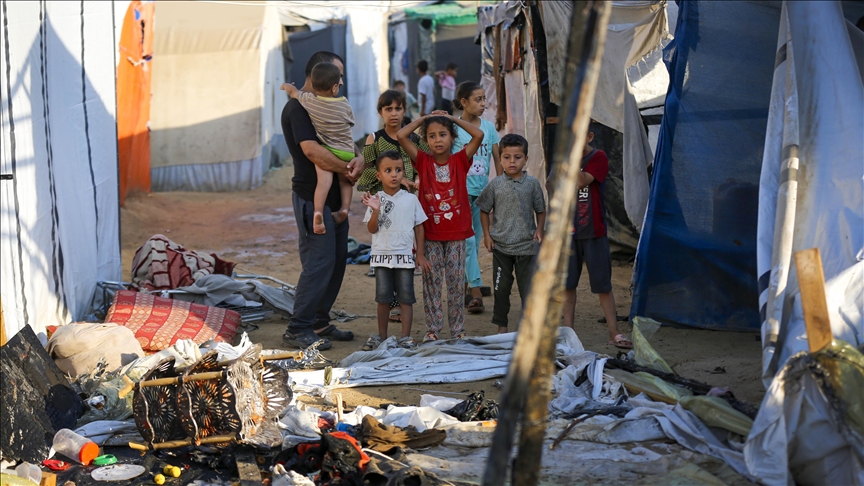Gaza's war-hit children face diseases in unsanitary tent camps
Amid Gaza's humanitarian crisis, dedicated Palestinian doctors striving to treat ailing children in makeshift health centers

DEIR AL-BALAH, Palestine
Hundreds of Palestinian families who have fled Israeli attacks and sought refuge in Deir al-Balah in the central Gaza Strip are exposed to various diseases in tents lacking hygienic conditions.
Due to the extreme overcrowding of the camps, lack of hygiene, and the accumulation of wastewater in the area, Gazan children are visiting the health tent in the area with complaints of skin diseases, scabies, and rashes.
Palestinian doctors working in the health tent are trying to treat the children with limited resources.
Speaking to Anadolu, Doctor Samih Ahmed, who works in the health tent, said that few volunteer health workers are providing services to the displaced Gazans who have taken refuge in the camp.
With the population in the camp increasing and the infrastructure in the area destroyed, wastewater has reached living areas, said Ahmed, warning that hygienic conditions cannot be ensured in the region where access to water is limited.
As a result, epidemic skin diseases such as scabies, chickenpox, and rashes have increased among Gazans, he said.
Ahmed underlined that the wastewater flowing from the streets and seeping into the tents has caused an increase in insects, leading to various diseases.
With the arrival of the summer season, there have been many cases of skin burns, Ahmed noted.
Israel, flouting a UN Security Council resolution demanding an immediate cease-fire, has faced international condemnation amid its continued brutal offensive on Gaza since an attack last October.
Nearly 40,000 Palestinians have since been killed, mostly women and children, and over 91,000 injured, according to local health authorities.
The relentless military campaign has levelled much of the territory and left most of the people homeless, and hungry.
Over 10 months into the Israeli war, vast tracts of Gaza lie in ruins amid a crippling blockade of food, clean water, and medicine.
*Writing by Zehra Nur Duz








